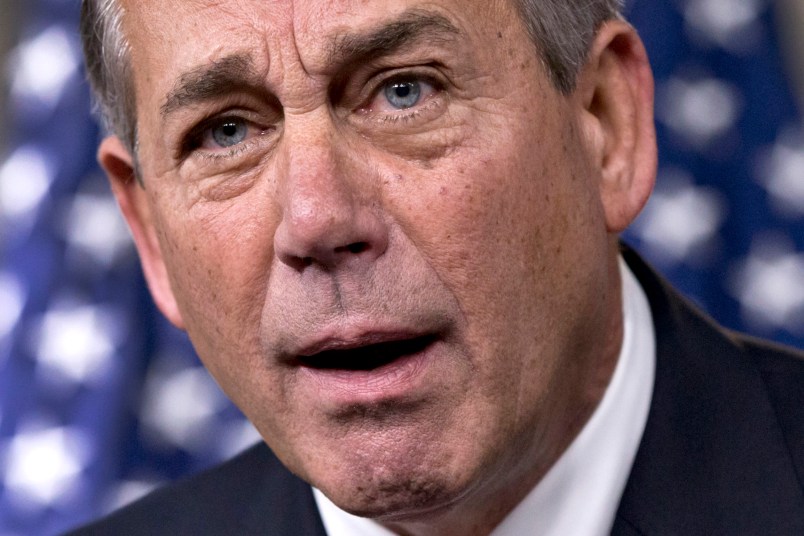Very interesting piece by TPM’s Sahil Kapur trying to tease out just what happened this week between Speaker Boehner and the Tea Party. For the first time in his Speakership, Boehner smacked the Tea Party down hard and won. And this after years of kowtowing to them and essentially ceding control of the House to these outside groups.
The outside observers Sahil talked to didn’t seem too sanguine about whether Boehner can keep this up. Soon enough, or on other issues, we’ll be back to the same old same old, they seem to be saying. But I’m a bit less clear on this. No, I don’t expect Boehner to be overthrown or the Tea Party to disappear. But I also don’t think such a dramatic or novel turn of events necessarily creates a stable situation, one that can simply persist into the future. I suspect these outside groups will need to find a way to again asset their power or face being permanently and significantly diminished.
Second, this points us again to the question of just what and who constitute the Tea Party.
I’m generally of the opinion that ‘the Tea Party’ is essentially a rebranding of what most of us know and recognize as the base right-wing of the GOP which has had a consistent and continuous existence back through the modern political era, a good half century at least. But as long as we’re talking about the contemporary phenomenon, I think we should speak of two ‘Tea Parties’.
There’s there’s that 20% or so of the electorate that is right-wing and moving further right, deeply hostile to President Obama and generally feeling they’re trying to hold their ground in what is likely a losing fight against the transformation of America by immigrants, urban values, ‘socialism’ and the rest.
Then you’ve got the ‘outside groups’ Boehner focused on – as always the same three – Club for Growth, FreedomWorks and Heritage Action.
These are each groups funded by extremely wealthy donors and – when you scrape away the trappings – almost exclusively driven by enforcing tax cuts, anti-regulatory politics and laissez-faire economics. As Boehner suggested, they don’t even seem particularly focused on policy anymore but rather on keeping politics maximally polarized and aggrandizing their own power and fundraising ability.
I don’t go so far as to say they’re wholly distinct or unconnected. The two groups have a common interest in maintaining a climate of political confrontation and crisis. But for not altogether similar reasons.






